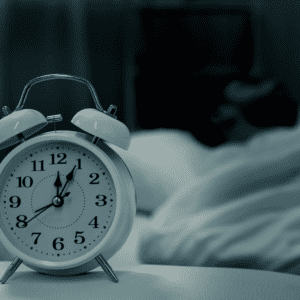Are you struggling with getting a good night’s sleep? Do you find yourself tossing and turning, unable to quiet your mind and drift off to dreamland? Or maybe you fall asleep easily but wake up feeling groggy and unrested? If any of this sounds familiar, don’t worry – you’re not alone. Millions of people struggle with getting quality sleep each night, and it can have a big impact on their overall health and well-being.
The good news is that there are some simple sleep habits you can adopt to improve the quality of your sleep and wake up feeling refreshed and energized. In this post, we’ll dive deep into the 10 sleep habits you can start implementing today to transform your sleep and improve your life. So, grab a cup of tea, get cozy, and let’s get started on your journey toward better sleep habits!
Habit #1: Take a Nap During the Day

Do you often find yourself feeling sluggish and unproductive in the middle of the day? Taking a nap may be the solution you’ve been looking for! In this blog post, we’ll dive into the benefits of napping for both your mental and physical health, and share some tips for effective napping.
Benefits of Napping
Napping has been shown to have a number of benefits for both your mind and body. Some of these benefits include:
- Increased Alertness: A nap can help you feel more alert and focused, making you more productive when you return to your tasks.
- Improved Memory: Napping can improve your memory and help you better retain information.
- Reduced Stress: A short nap can help reduce stress and improve your mood, making you more resilient and better equipped to handle challenges.
- Lower Blood Pressure: Napping has been shown to help lower blood pressure and reduce the risk of heart disease.
Tips for Effective Napping
To get the most out of your naps, it’s important to nap effectively. Here are some tips to help you do just that:
- Keep it Short: Naps that are too long can leave you feeling groggy and disoriented. Aim for naps that are between 20 and 30 minutes in length.
- Time it Right: The best time to nap is generally in the early afternoon, between 1 and 3 pm. This is when your body is naturally programmed to feel a dip in energy levels.
- Find a Comfortable Place: Choose a quiet, comfortable place to nap where you won’t be disturbed. A couch or bed are good options.
- Set an Alarm: To avoid oversleeping and feeling groggy, set an alarm for the desired length of your nap.
- Make it a Habit: Consistency is key when it comes to napping. Try to nap at the same time every day to help establish a regular sleep schedule.
Taking a nap during the day can have numerous benefits for both your physical and mental health. By following these tips for effective napping, you can make the most of your nap time and improve your overall well-being. So go ahead, take a nap – your body and mind will thank you!
Habit #2: Get sunlight during the day

You see, our bodies have a natural internal clock that regulates our sleep-wake cycle, and this clock is influenced by environmental cues, such as natural light. When we expose ourselves to bright light during the day, it helps signal to our bodies that it’s time to be awake and alert, and when it starts to get dark, our bodies naturally start to wind down for sleep.
Unfortunately, many of us spend our days indoors, either at work or at home, and we don’t get enough exposure to natural light. This can throw off our internal clocks, making it harder to fall asleep at night and harder to wake up in the morning.
So, how can you get more sunlight during the day? Here are a few tips:
Spend more time outdoors: Whether it’s going for a walk, a hike, or just sitting outside for a few minutes during your lunch break, try to get outside and soak up some natural light.
Use light therapy: If you’re unable to spend much time outside during the day, you can use a light therapy box to simulate natural light. These boxes emit bright light that can help regulate your sleep-wake cycle.
Open your curtains: When you’re at home or at work, make sure to open your curtains and let in as much natural light as possible.
By making sure you get enough sunlight during the day, you can help regulate your sleep-wake cycle and improve the quality of your sleep. So, make it a habit to get outside and soak up some natural light every day. Your body will thank you for it.
Habit #3: Avoid Stimulants Before Bed

Stimulants like caffeine and nicotine can have a big impact on your sleep quality. They can make it harder for you to fall asleep and stay asleep, and can also cause you to wake up feeling groggy and unrested.
The good news is that there are things you can do to limit or eliminate your intake of these stimulants before bed. Here are a few tips:
Cut out caffeine after 10 a.m. – The half-life of caffeine is around six hours, which means that if you have a cup of coffee at 4 p.m., you’ll still have caffeine in your system at 10 p.m. Try to cut off your caffeine intake after 10 a.m. to ensure that it doesn’t disrupt your sleep.
Switch to decaf – If you really need a warm beverage before bed, try switching to decaf coffee or tea. This will give you the same comforting feeling without the caffeine.
Avoid nicotine – Nicotine is a stimulant that can have a big impact on your sleep. If you’re a smoker, try to quit or at least avoid smoking before bed.
Be mindful of other stimulants – Other things like sugary drinks, energy drinks, and even some medications can contain stimulants that can disrupt your sleep. Be mindful of what you’re consuming throughout the day and how it might affect your sleep.
Remember, getting a good night’s sleep is crucial for your overall health and wellbeing. By avoiding stimulants before bed, you can give yourself the best chance for a restful and rejuvenating night’s sleep.
Habit #4: Create a bedtime routine

Are you tired of tossing and turning at night, struggling to fall asleep? Creating a consistent bedtime routine can help improve your sleep quality and make it easier to fall asleep. In this habit, we’ll discuss the benefits of a bedtime routine and share some examples of activities you can include in your own routine.
Benefits of a consistent bedtime routine for better sleep
A consistent bedtime routine can signal to your body that it’s time to wind down and prepare for sleep. This can help regulate your circadian rhythm, making it easier to fall asleep and wake up at the same time each day. Additionally, a bedtime routine can help reduce stress and anxiety, which are common culprits of sleepless nights.
Examples of activities that can be included in a bedtime routine
There are a variety of activities you can include in your bedtime routine to help you relax and prepare for sleep. Some examples include:
Stretching: Gentle stretching can help release tension in your muscles and prepare your body for rest.
Reading: Reading a book or magazine can help distract your mind from the stresses of the day and ease you into a more relaxed state.
Meditation: A few minutes of guided meditation can help quiet your mind and reduce anxiety.
Journaling: Writing down your thoughts and feelings can help you process them and release any pent-up emotions that may be keeping you awake.
Gratitude practice: Taking a moment to reflect on the good things in your life and expressing gratitude can help shift your focus away from negative thoughts and emotions.
Incorporating these or other relaxing activities into your bedtime routine can help promote a sense of calm and relaxation, making it easier to fall asleep and stay asleep throughout the night.
Creating a consistent bedtime routine can have a significant impact on your sleep quality and overall well-being. By incorporating calming activities into your routine, you can help reduce stress and anxiety and promote a more restful night’s sleep. So why not give it a try and see how it can improve your sleep?
Habit #5: Use Your Bed Only for Sleep and Sex

Your bed should be a place where you can unwind and relax. If you use your bed for other activities, such as working or watching TV, your brain may start to associate your bed with those activities instead of sleep. This can make it harder to fall asleep and stay asleep.
By using your bed only for sleep and sex, you’ll create a clear association between your bed and restful activities. This can help you fall asleep faster and sleep more soundly throughout the night.
Tips for keeping distractions out of the bedroom
Remove electronics from your bedroom
Electronic devices emit blue light, which can interfere with your body’s natural sleep-wake cycle. Try to remove all electronics from your bedroom, including TVs, laptops, and phones. If you need your phone for an alarm, put it on airplane mode and keep it out of reach.
Keep your bedroom cool and dark
A cool, dark bedroom is ideal for sleep. Make sure your room is cool enough and invest in some heavy curtains or blinds to block out light. You can also try a sleep mask if you have trouble blocking out all the light.
Invest in comfortable bedding
Your bed should be a comfortable place to sleep. Invest in good quality bedding, including pillows, sheets, and blankets. If your mattress is uncomfortable, consider investing in a new one.
Avoid eating and working in bed
Eating and working in bed can disrupt your sleep routine. Try to avoid these activities in bed, and instead use a separate area in your home for eating and working.
Train your brain to associate your bed with sleep
Finally, you can train your brain to associate your bed with sleep by only using your bed for sleep and sex. Over time, your brain will learn to recognize that when you get into bed, it’s time to sleep.
Using your bed only for sleep and sex is an important habit to help improve your sleep quality. By removing distractions from your bedroom and creating a restful environment, you’ll be able to fall asleep faster and stay asleep longer. So, try implementing these tips and see how they can improve your sleep!
Habit #6: Keep a regular sleep schedule

Did you know that consistency in sleep-wake times is crucial for better sleep quality? When you establish a regular sleep schedule, your body naturally knows when it’s time to sleep and when it’s time to wake up, making it easier for you to fall asleep and wake up feeling rested.
Here are some tips for establishing and maintaining a regular sleep schedule:
Set a consistent bedtime and wake-up time: Aim to go to bed and wake up at the same time every day, even on weekends. This helps regulate your body’s internal clock and improves sleep quality.
Gradually adjust your sleep schedule: If you need to shift your sleep schedule, do it gradually. Start by adjusting your bedtime or wake-up time by 15-30 minutes each day until you reach your desired schedule.
Avoid napping: If you’re having trouble sleeping at night, avoid napping during the day. Napping can disrupt your sleep schedule and make it harder to fall asleep at night.
Limit caffeine and alcohol: Caffeine and alcohol can disrupt your sleep schedule, so try to limit your intake, especially in the evening.
Create a relaxing bedtime routine: Establish a relaxing bedtime routine to signal to your body that it’s time to sleep. This could include reading, taking a bath, or practicing relaxation techniques like deep breathing or meditation.
Remember, consistency is key when it comes to establishing and maintaining a regular sleep schedule. Stick to your schedule as much as possible, even on weekends, and your body will thank you with better sleep quality and more energy during the day.
Habit #7: Create a Comfortable Sleep Environment

Your sleep environment can have a big impact on the quality of your sleep. When your sleeping space is uncomfortable or disruptive, it can be difficult to fall asleep and stay asleep. This can lead to feelings of exhaustion, irritability, and even long-term health problems.
On the other hand, a comfortable sleep environment can help promote restful sleep and improve your overall well-being. By setting up a space that’s calm, quiet, and comfortable, you’ll be more likely to fall asleep quickly and stay asleep throughout the night.
Tips for Creating a Comfortable Sleep Environment
So, how can you create a sleep environment that promotes restful sleep? Here are some tips to get you started:
Control the Temperature: The ideal sleep temperature is between 60 and 67 degrees Fahrenheit. Make sure your room is cool enough to promote restful sleep, but not so cold that you feel uncomfortable.
Control the Lighting: Light can disrupt your body’s natural sleep rhythms, so make sure your sleeping space is as dark as possible. Use blackout curtains or an eye mask to block out light from outside. And if you need to use a night light, opt for a red or orange bulb, which won’t interfere with your sleep hormones.
Reduce Noise: Noise can also disrupt your sleep, so try to eliminate or reduce any sources of noise in your sleeping space. Use earplugs, a white noise machine, or a fan to create a soothing, quiet environment.
Choose Comfortable Bedding: Your bedding can make a big difference in your sleep quality. Choose a comfortable mattress and pillows that support your sleeping position. And make sure your sheets and blankets are made of breathable, comfortable materials.
Keep Your Sleeping Space Tidy: A cluttered, messy sleeping space can be stressful and disruptive. Keep your sleeping area clean and tidy, and make sure to remove any distractions that might keep you from sleeping.
Habit #8: Limit Screen Time Before Bed

Are you having trouble sleeping at night? Do you often find yourself staring at your phone or computer screen before bed? If so, you may be negatively impacting your sleep quality without even realizing it. In this blog post, we will explore the impact of electronic devices on sleep and provide you with tips for reducing screen time before bed, including setting boundaries and using blue light filters.
How Electronics Can Affect Your Sleep Quality
Electronic devices emit a blue light that can disrupt our body’s natural sleep-wake cycle. This is because blue light suppresses the production of melatonin, the hormone that regulates sleep. When we are exposed to blue light before bed, our brain gets confused and thinks it’s still daytime, making it harder for us to fall asleep and stay asleep throughout the night. Additionally, scrolling through social media or reading emails on your phone can cause anxiety or stress, making it even harder to relax and fall asleep.
Tips for Reducing Screen Time Before Bed
Set Boundaries: Set a specific time each night to stop using electronics, such as an hour before bed, and stick to it. This will help signal to your brain that it’s time to wind down and prepare for sleep.
Use Blue Light Filters: Many devices now have built-in blue light filters or settings that allow you to adjust the color temperature of your screen. This can help reduce the amount of blue light emitted and make it easier for your brain to produce melatonin.
Read a Book: Instead of scrolling through social media or reading emails before bed, try reading a book or magazine. This can help relax your mind and get you in the right mindset for sleep.
Try Relaxation Techniques: Engage in relaxation techniques such as meditation, deep breathing, or yoga before bed. This can help calm your mind and body and reduce anxiety or stress.
Keep Electronics Out of the Bedroom: Avoid using electronics in the bedroom altogether. This will help create a sleep-friendly environment and reduce the temptation to scroll through your phone or watch TV.
By limiting screen time before bed and adopting these habits, you can improve your sleep quality and wake up feeling more rested and refreshed. Remember, your electronics can wait, but your sleep cannot.
Habit #9: Exercise Regularly

When it comes to improving sleep quality, regular exercise has been shown to have numerous benefits. Here are just a few:
Fall asleep faster: Exercise has been found to shorten the amount of time it takes to fall asleep, making it easier for you to drift off into a restful slumber.
Improve sleep duration: Regular exercise has been linked to longer sleep durations, allowing you to get the recommended seven to nine hours of sleep per night.
Enhance sleep quality: Exercise has been found to improve the overall quality of sleep, resulting in a more restful and rejuvenating night’s rest.
Reduce daytime sleepiness: By improving sleep quality and quantity, regular exercise can reduce daytime sleepiness and increase alertness throughout the day.
Reduce symptoms of sleep disorders: Exercise has been shown to be an effective tool in reducing symptoms of sleep disorders such as insomnia and sleep apnea.
Tips for Incorporating Exercise into Your Daily Routine
Now that we’ve explored the benefits of regular exercise for sleep quality, let’s discuss some tips for incorporating exercise into your daily routine.
- Find an exercise that you enjoy: Whether it’s running, yoga, or weightlifting, find an exercise that you enjoy and that you’re more likely to stick with long-term.
- Set a consistent workout schedule: Consistency is key when it comes to reaping the benefits of exercise for sleep quality. Set a regular workout schedule and stick to it.
- Time your workouts strategically: Exercising too close to bedtime can actually have the opposite effect on sleep quality. Aim to finish your workout at least three hours before bedtime.
- Gradually increase the intensity of your workouts: If you’re new to exercise, start with low-intensity workouts and gradually increase the intensity over time.
- Incorporate exercise into your daily routine: Take the stairs instead of the elevator, go for a walk during your lunch break, or ride your bike to work. Incorporating exercise into your daily routine can make it easier to stick with over the long-term.
Incorporating regular exercise into your daily routine can have a significant impact on your sleep quality and overall health. By following these tips, you’ll be well on your way to a more restful and rejuvenating night’s rest.
Habit #10: Eat a healthy diet

What you eat can play a significant role in promoting a restful night’s sleep. Here are some tips for incorporating sleep-promoting foods into your diet:
Eat foods high in magnesium: Magnesium is a mineral that can help relax your muscles and calm your mind. Foods rich in magnesium include leafy greens, nuts and seeds, whole grains, and dark chocolate. Incorporating these foods into your diet can help you fall asleep faster and stay asleep longer.
Consume foods high in tryptophan: Tryptophan is an amino acid that is a precursor to serotonin, a neurotransmitter that helps regulate your sleep-wake cycle. Foods rich in tryptophan include turkey, chicken, fish, eggs, and tofu. Consuming these foods can help improve the quality of your sleep and regulate your mood.
Avoid caffeine and alcohol: While it may be tempting to have a cup of coffee or a glass of wine before bed, these drinks can actually disrupt your sleep. Caffeine is a stimulant that can keep you awake, while alcohol can disrupt your REM sleep and lead to fragmented sleep.
Stay hydrated: Drinking plenty of water throughout the day can help you sleep better at night. Dehydration can lead to headaches, fatigue, and irritability, which can all affect the quality of your sleep. Aim to drink at least 8 glasses of water per day.
Eat a balanced diet: Eating a balanced diet that includes a variety of fruits, vegetables, whole grains, lean proteins, and healthy fats can provide your body with the nutrients it needs to function properly. When your body is well-nourished, you may find that you sleep better and wake up feeling more refreshed.
Incorporating these sleep-promoting foods into your diet can help you get the restful night’s sleep that you deserve. By making small changes to your diet, you can improve the quality of your sleep and wake up feeling more energized and refreshed.
Conclusion
By now, you have all the knowledge and tools necessary to establish and maintain healthy sleep habits. Remember, quality sleep is not just about feeling rested, it’s about promoting overall health and well-being.
So, let’s do a quick recap. The ten habits for better sleep are as follows:
- Establish a consistent sleep schedule
- Create a sleep-conducive environment
- Limit screen time before bed
- Avoid stimulating substances before bed
- Practice relaxation techniques before bed
- Exercise regularly
- Watch what you eat and drink
- Manage your stress levels
- Listen to your body
- Be mindful of your sleeping position and sleep attire
It’s important to remember that developing and maintaining these habits may take some time and effort. But, it’s worth it for the long-term benefits to your health and well-being.
So, I encourage you to take action and incorporate these habits into your daily routine. Start small and build up over time. With patience and persistence, you will soon notice a significant improvement in your sleep quality and overall health.
Remember, quality sleep is the foundation for a healthy and fulfilling life. So, let’s make it a priority and reap the benefits that come with it. Sweet dreams!

